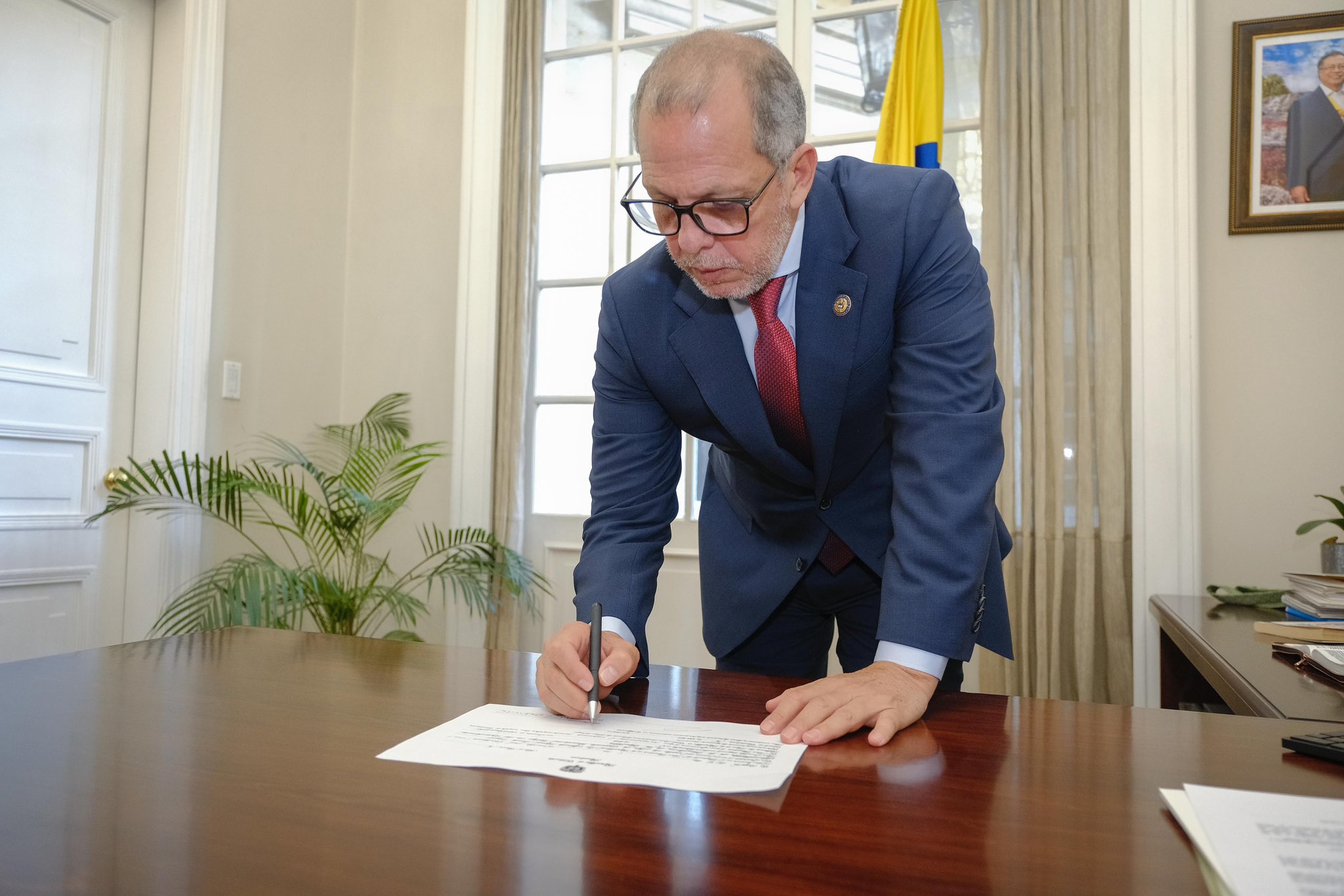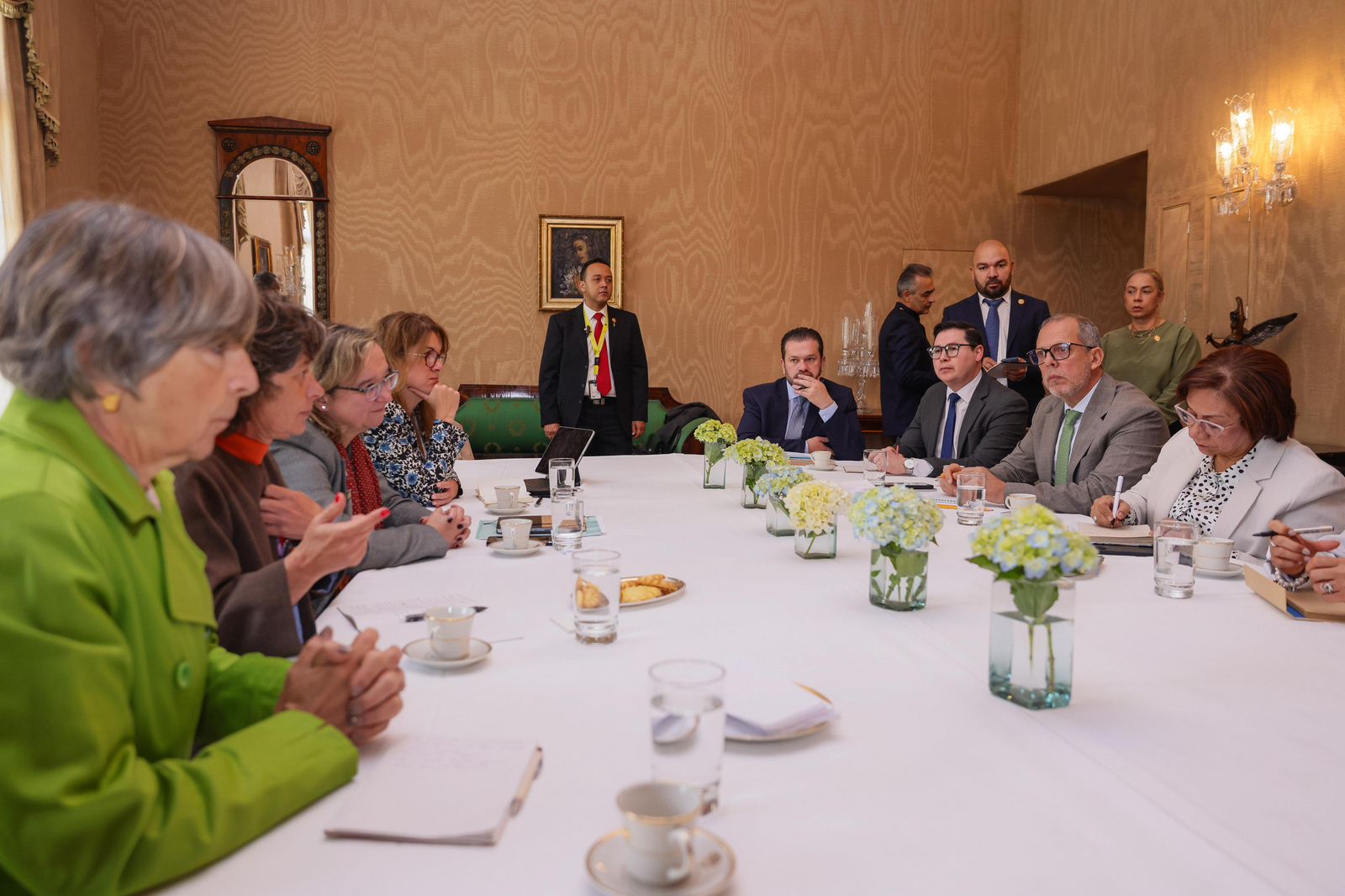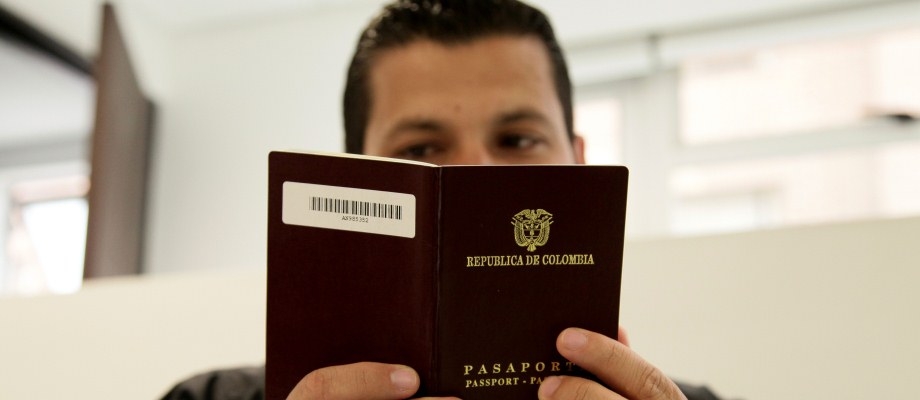The government has yet to reveal whether a passport agreement with Portugal has been signed; the agreement is reportedly being processed confidentially.

Although the head of the office, Alfredo Saade, confirmed that, following technical discussions, everything was ready with Portugal to sign the international cooperation agreement guaranteeing the issuance of passports starting September 1, the agreement has not yet been made official, and the entities involved remain tight-lipped about the process.
EL TIEMPO learned that the agreement would be processed under a confidentiality agreement , which would prevent key details from being revealed. However, sources close to the government warn that it should be public to allow for citizen oversight, especially when it comes to an essential service like passport issuance. "They're going to go through a confidentiality agreement, but it should be public for oversight," they told this newspaper.

Lines at the northern passport office in Bogotá. Photo: César Melgarejo
According to Saade, 10 technical meetings were held last week with representatives from the Portuguese government, and the terms of the agreement were agreed upon as of July 10. However, the National Printing Office, the entity that would receive the training and technology transfer to produce the documents and which has been criticized for its lack of experience in this type of work, told the press that the agreement has not yet been signed and that the Ministry of Foreign Affairs' Revolving Fund is responsible for the final decision.
The Foreign Ministry is secretive, and they point out that the Casa de Nariño is leading the process. " It's important to respect what the Presidency has wanted to do, which is for the chief of staff to lead the way ," said Deputy Minister Mauricio Jaramillo.

Chief of Staff Alfredo Saade. Photo: Private archive
The government is reportedly trying to protect the agreement with Portugal. There are several caveats. Former Foreign Minister Laura Sarabia maintained that she did not sign the agreement because it was at risk of falling apart due to a lack of legal and budgetary support. She noted that, although signing it was a possible process, the real problem would come later, when the agreement could be challenged—for example, through a class action lawsuit—and overturned by the judges. " The only ones who pay for the improvisation are the citizens ," she stated. According to her team, at least 35 weeks of transition would be needed for the new model to become operational.
If it is proven that Alfredo Saade has had some kind of interference in the matter, he could incur in overstepping his functions and transmit those defects to the agreement.
Although a lawsuit is a possible option if an agreement is signed without legal backing, it is not the only possible scenario. Officials are also subject to disciplinary oversight, fiscal impact reviews, and, potentially, criminal liability.
Saade, whom the Attorney General's Office has already opened an investigation into for problems in contracting for passport issuance, now faces a disciplinary complaint seeking his suspension from office for alleged overstepping his authority.

Technical roundtable on passports between Colombia and Portugal. Photo: Presidency
" If it is proven that Alfredo Saade has had any kind of interference in the matter, he could be exceeding his authority and transmitting these flaws to the agreement ," explained Alexandra Lozano, a lawyer specializing in administrative law and public procurement.
According to Lozano, by suing the agreement, a provisional suspension could be requested, which seeks to ensure that "the act challenged in this case does not have any legal effects while its legality and other alleged objections are being decided, which in practice makes it impossible to enforce what was agreed in the agreement."
Sources from the Ministry of Foreign Affairs' Revolving Fund told this newspaper's Investigative Unit that enabling a similar route to printing foreign identity cards would be a failure due to errors in printing these documents, which led to a disciplinary investigation by the Attorney General's Office against the heads of Colombian Immigration and the National Printing Office.

Colombian passport. Photo: Ministry of Foreign Affairs
“ This is an extremely sensitive issue for the country, which requires impeccable handling, with no room for improvisation or legal shortcuts ,” said Representative Juana Carolina Londoño (Conservative Party), who is already preparing a political control debate for the acting Chancellor Rosa Villavicencio, in which she will have to answer for the technical plans for this September once the current manifest urgency with Thomas Greg & Sons concludes, including data governance and logistical risks, among other issues.
“If access to passports were affected, Colombians would face serious consequences, such as the inability to travel, complete international procedures, or access employment and educational opportunities abroad. This could also generate legal uncertainty, limit the exercise of fundamental rights, and impact family finances, especially for those who depend on cross-border mobility. As a member of the Second Committee, I am committed to preventing these impacts from materializing,” the congresswoman emphasized.
Juan Pablo Penagos Ramirez
eltiempo





